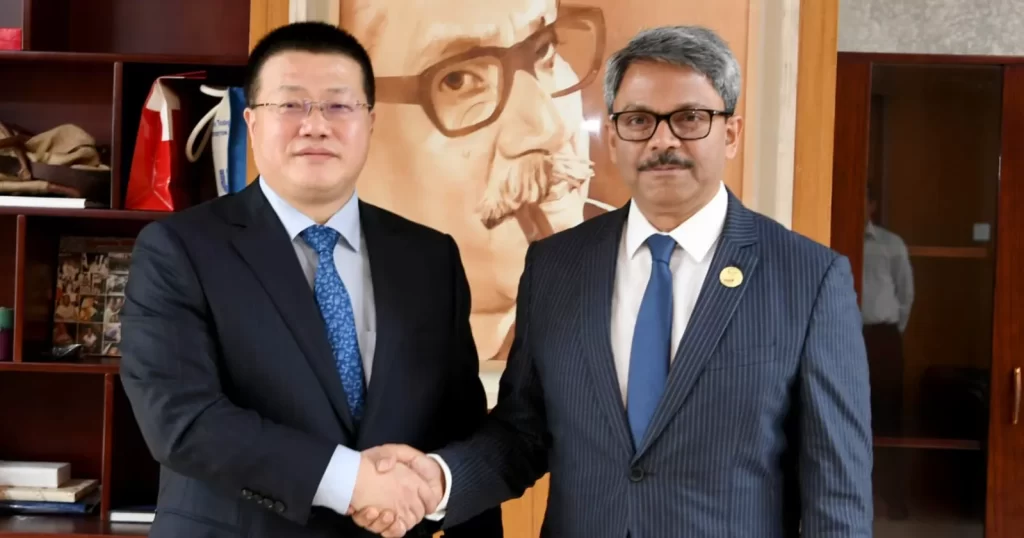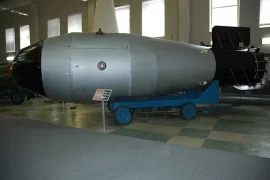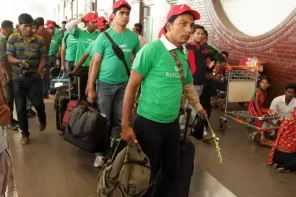
China’s new Ambassador to Bangladesh, Yao Wen, met with Bangladesh State Minister for Foreign Affairs, Shahriar Alam, on January 22, 2023 to discuss issues of mutual interest. The Chinese Ambassador showed interest to conclude a memorandum of understanding (MoU) on public-private partnership (PPP) to boost bilateral trade and commerce. It is worth noting that China is currently the largest bilateral trade partner of Bangladesh.
During the meeting, State Minister Alam emphasized the importance of direct air connectivity between the two countries and encouraged the Chinese Ambassador to consider Bangladesh as a suitable location for industries to relocate from China. He also expressed hope that bilateral relations between the two countries will reach new heights during Ambassador Wen’s tenure.
The topic of Rohingya repatriation was also discussed cordially, with State Minister Md Shahriar Alam expressing optimism that the “pilot project” for repatriation would be executed at an early date. He thanked China for its active role in a trilateral initiative among Bangladesh, Myanmar, and China to promote the early return of forcibly displaced Rohingyas to Myanmar.
Ambassador Wen acknowledged Bangladesh’s “sacrifice” in hosting a large number of Rohingyas and assured that China will play its role in their repatriation. He also recognized that both countries have a common objective regarding the repatriation of Rohingyas to their homeland.
In addition, State Minister Alam thanked the Chinese government for its support in dealing with the Covid-19 pandemic and the repatriation of Bangladeshi students from China, who will be returning to China to continue their higher studies.
Recently, A joint venture led by China Civil Engineering Construction Corporation (CCECC) has been contracted to renovate a key part of the Pagla sewage treatment plant in Bangladesh using the microtunneling technique.
The design and build contract was signed with the Dhaka Water Supply and Sewerage Authority (DWASA) on January 17, 2023 and will involve the construction of a 12.2-km-long trunk main sewer and one sewage pumping station, with 5.97 km of the trunk main sewer to be constructed using the microtunneling technique. This is the first time that the microtunneling method will be used in a sewer treatment project in Bangladesh and will help reduce the impact of construction on traffic and the environment. The project is part of the larger Dhaka Sanitation Improvement Project which aims to provide improved sanitation services to 1.5 million citizens.







